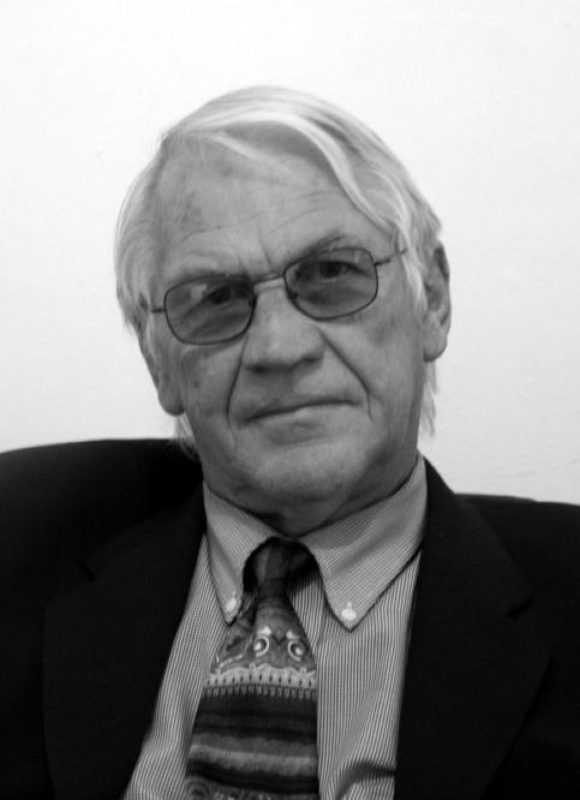PIONEER
Professor Willie Esterhuyse

Professor of philosophy | Journalist | Negotiator
Born: 19 August 1936.
“Peace between enemies is possible. Enemies can learn to trust each other. This does not happen spontaneously, however, but as a result of a laborious learning process in which timing plays a significant part.”
Who is
Professor Willie Esterhuyse?
Emeritus Professor of Philosophy at the University of Stellenbosch who was a well-known apartheid critic that initiated dialogue between the African National Congress (ANC)-in-exile and the apartheid government
Professions
and Roles
Academic, writer, journalist, philosopher, apartheid critic, and negotiator.
Best Known For
Esterhuyse initiated dialogue between the ANC-in-exile and the apartheid government between 1987 and 1990.
Life highlights
- Esterhuyse studied at the University of Stellenbosch between 1958 and 1964, where he completed his doctorate in philosophy.
- During his studies, Esterhuyse took a two-year sabbatical in the Netherlands where he was exposed to progressive writings which had been banned in apartheid South Africa.
- Between 1965 and 1967, Esterhuyse lectured at University College in Durban and then at the Rand Afrikaanse Universiteit (RAU) until 1974, after which he was appointed as a Professor of Philosophy at the University of Stellenbosch.
- Throughout the 1960s and 1970s, Esterhuyse wrote regular political analysis columns for a number of news organisations like the F&T Weekly, Die Burger, Beeld, and Die Volksblad.
- Esterhuyse published a number of books criticising apartheid: Farewell of Apartheid in 1979; Apartheid Must Die in 1981, and The Path of Reform in 1982. For this, as well as his outspoken journalistic criticisms of apartheid, he became known as a ‘reformer’ within the Afrikaner establishment.
- In 1987, Esterhuyse and another ‘reformist’ academic from the University of Stellenbosch, Sampie Terreblanche, were contacted by the ANC through a British interlocutor called Michael Young, an ally of the ANC. Esterhuyse and Terreblanche travelled to Henley-on-Thames in England to meet with the ANC in exile. This initiated a number of secret meetings between the Afrikaner establishment and the ANC.
- The 12 Mells Park meetings – named after the estate in which they were held near Bath – between November 1987 and May 1990, formed the first formal space of dialogue between the two groups. Esterhuyse and Terreblanche, with as many as 20 prominent Afrikaner intellectuals, businesspeople, church leaders, and Broederbond members, began elaborating on the ideas of releasing Mandela, a negotiated settlement and a government of national unity. Esterhuyse conveyed messages that were vetted by the ANC to the security apparatus of the apartheid government regarding the transition to democracy. Esterhuyse was thus central to the establishment of an indirect line of contact between the two conflicting groups.
- Esterhuyse flew to London in 1989 and convinced Mbeki to talk with Niel Barnard, the head of the National Intelligence Service, who had been having secret talks with the still incarcerated Mandela and who had a direct line of communication to PW Botha, the then President.
- When the ANC was unbanned in 1990, and formal negotiations began, Esterhuyse was not a formal negotiator but ensured that his connections within the Afrikaner nationalist establishment returned to the negotiating table when deadlocks were reached.
- Esterhuyse was awarded the Order of Luthuli in Silver by the Presidency in 2003 for “His outstanding role in opening and maintaining dialogue between the ANC and the apartheid government, which contributed both to the removal of obstacles to negotiations to end apartheid and create a democratic, non-racial, non-sexist South Africa”.
IN THEIR OWN WORDS
“Our reconciliation and peace process since the official and moving election of 1994, which demonstrated that our country also contains a Cape of Good Hope, currently looks extremely threadbare in light of the prevailing culture of violence … We have transformed from an authoritarian, race-based minority government, to an inclusive constitutional democratic dispensation. This transformation, however, was neither a transformation to sustainable, visible institutional and personal images of reconciliation and peace, nor a transformation to a non-racial dispensation, free from … violence.”
– Willie Esterhuyse
IN THE WORDS OF OTHERS
“Prof Willie Esterhuyse made a humble yet significant contribution to the ultimate success of negotiations, which finally led to the interim Constitution that laid the basis for full democracy in South Africa.”
– The Presidency, 2003
